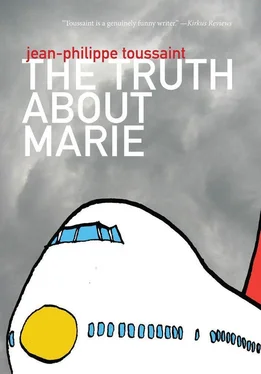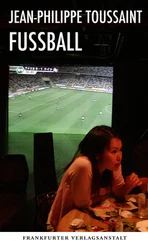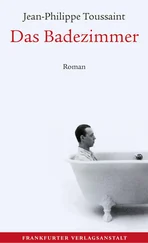I was still about a hundred feet from the building, and I’d stopped running, I was walking briskly, picking up my pace and slowing it down at the same time, in the same contradictory movement, the same propelling force, the same conflicted stride. I came to an abrupt stop when I saw the flashing lights at Marie’s door and I was nearly frozen in my tracks, fear having paralyzed my legs, making my last steps impossibly heavy, resistant. I continued to move forward nonetheless, and I perceived a light through the ambulance’s wet windows, a yellow light in that intimate space where the injured are laid, then my attention was drawn to the door of Marie’s building opening in front of me. I discerned nothing at first but the arm, white, of a paramedic holding open the door, then I saw the other paramedics leave the building in turn, four or five of them total, in white tunics, and there was a human form on the stretcher, my heart began to pound when I saw that there was someone on the stretcher — this someone could have been Marie, I had no idea what had happened, Marie had told me nothing on the phone — but it wasn’t Marie, it was a man, I could see his socks sticking out from under the small blanket covering his body. I gleaned nothing but isolated details, focused, removed from their context, caught only in passing, his socks, dark, imposing, as if this man would henceforth be reduced to these, his wrist, horrid, to which the IV was attached, a livid wrist, yellow-hued, cadaverous, his face pale, on which I focused closely, scrutinizing its features to see who this was, but in vain, his face, completely covered by the oxygen mask, was perfectly invisible. This human form, shirtless, a black sports coat thrown over the top of the stretcher and a briefcase stuck in between two transversal poles at its base, was not moving. I was standing there motionless on the sidewalk when I felt the presence of someone watching the scene. I lifted my eyes and saw Marie at the window, chin resting in her palms on the second floor of the building, Marie, her eyes fixed on the stretcher, and I understood the whole situation right then and there. In a flash, I knew without a doubt the man being carried away on the stretcher had spent the night with Marie and that something had happened to him and not to Marie (Marie was safe and sound, nothing had happened to Marie). And it was at that moment that Marie saw me, our eyes met for an instant in the night, it had been more than two months since we’d last seen each other.
I opened the heavy door of the building and started up the stairs toward Marie’s apartment. Her apartment door was open on the landing, and I stepped inside, I made my way silently down the hallway. As I entered the room I noticed immediately the presence of a pair of shoes near the bed. It was the sole indication that the man had been in her room. Everything else of his had disappeared, nothing attested to his having been there, not the slightest trace of the medical attention he’d been given less than five minutes earlier, no stray medical equipment, bandages or tubes, left behind. I looked at this pair of shoes at the foot of the bed, abandoned carelessly (one was upright on its sole and the other was tipped over on its side), elegant Italian shoes, sharp and powerful and at the same time slender, of delicate material, rawhide or calf-hide leather, a classic pair of wingtips firm and smooth, certainly very comfortable, faithful to the reputed excellence of Italian shoes, the best of which truly fit like gloves over one’s feet, of an indefinable color, fawn or chamois, its laces extremely thin and sturdy like fishing line, with a velvety, almost fury upper, bordered by a multitude of tiny decorative perforations subtly underlining the topstitched line of the seams, and, traced in the lining — a new lining that likely retained a slight scent of fresh leather — a discreet and seemingly coded golden inscription. I looked at these empty shoes, abandoned at the foot of the bed, they were all that was left of the man. Of him, as in the fabled image of a lightning-struck man, nothing remained but his shoes.
Marie heard me come into the room but she didn’t turn around. She waited for me to join her at the window, and we stood there side by side in silence, watching the ambulance speed off in the night. It went off toward the Seine, the echo of its siren fading little by little before disappearing altogether. Then, slowly, Marie moved closer to me, gently, sleepily, she touched my shoulder without uttering a word as a tacit sign of appreciation for my being there for her.
I was soaked, dripping wet, water streamed down the sleeves of my coat to form a small puddle at my feet on the floor. When outside I didn’t feel a thing, I didn’t even realize I was wet. My coat was now like a formless wet rag hanging from my shoulders, my shirt stuck against my chest, the fabric of my clothes stretched and weighed down by this syrupy rain, even my socks, swashing inside my shoes at every step, left me with that awful physical sensation that can only come from wet socks. I took off my socks and shoes, which I left near the window, and I walked through the room barefoot, letting the water drip from my outstretched arms, leaving trails of rain in my wake. I unbuttoned my sticky wet shirt and I looked around the room. It had hardly changed since I’d left, there was a new desk, but all in all it looked the same as when I’d moved out. I saw my old dresser still right where I’d left it, with my clothes probably still inside, the bulk of my clothes I hadn’t had time to take. I crouched down in front of it and opened its drawers, rummaged through the clothes, a mess of sweaters, shirts, pajamas, an old bathing suit stretched out at the waist. I grabbed a shirt and some other clothes to change into, began undressing.
Marie had remade the bed carelessly and sat against the wall to smoke a cigarette in the half-light, her legs making a Z under her XL T-shirt. She’d turned off all the lamps except for one near the bed, whose light was dimmed. She sat there silently for a long time, distraught, a vacant look on her face, then, in a soft voice and without looking at me, she started to tell me about Jean-Christophe de G., taking a drag of her cigarette from time to time, she told me she’d met him in Tokyo earlier that year at her exhibition’s opening at the Contemporary Art Space of Shinagawa, she told me about his work and many projects, he was a businessman and art connoisseur, told me she saw him again a few times in Paris when she’d come back from Japan, three or four times in the first few months, then less frequently, they’d spent a weekend together in Rome, but really they hardly knew each other. Marie explained all this to me without considering the pain it might cause me, and I kept silent, asked no questions. I’d taken off my jacket and shirt and I was drying my back with a large white bath towel as I listened to her. I began to take my pants off, not without some difficulty as the material stuck to my skin, then I removed my boxers, letting them fall down to the ground at me feet. Marie continued to talk, her need to talk, to confide in someone was clear, she went over the night in detail, looking for the signs that could have warned her, a certain sluggishness, shortness of breath, spells of dizziness, the sense of unease he’d felt at the restaurant. I was standing naked in the half-light and no longer paying her much attention, I dried my neck, my sides, I rubbed the towel around my thighs, I scrubbed between my legs (and I must admit it felt quite nice).
I was still buttoning my shirt, my bare legs on the hardwood floor, when I glimpsed my reflection in the mirror on the mantel, one of those large gilded mirrors you find in Parisian apartments, its pediment in the shape of a decorative flame in plaster molding depicting an elegant tangle of intertwined acanthus leaves. I took a step forward and saw my reflection move in sync in the patinated depths of the mirror, its surface flecked and discolored and splotched by patches of darkness, my dark face disappearing into its shadows. The room around me faded into the surrounding darkness, the softened edges of the furniture could hardly be discerned, Marie’s desk where her computer was lit appeared without detail. I saw myself there, faceless, standing in the room where I’d lived for almost six years. Marie was still sitting against the wall. From where I was standing I heard nothing but her voice, her neutral and empty voice, telling me that Jean-Christophe de G. was married and that was why she wasn’t with him in the ambulance, an act of prudence in a way, so that his wife could be notified when he got to the hospital. But now she wondered how she’d find out about his condition, she didn’t even know which hospital they were taking him to.
Читать дальше












